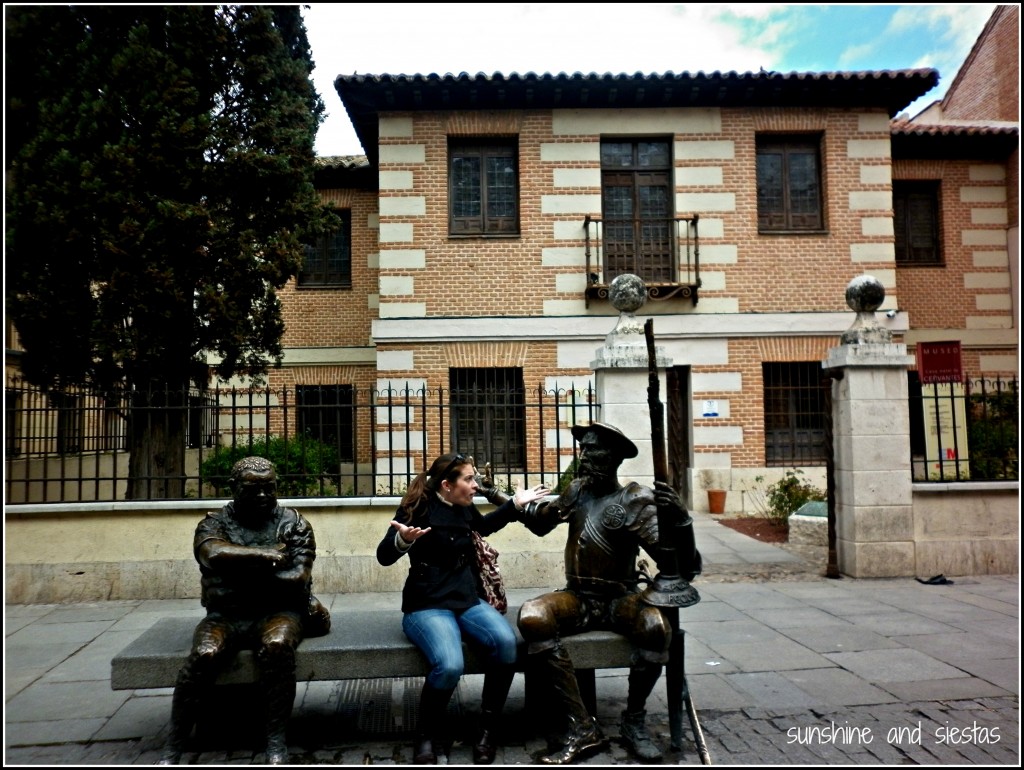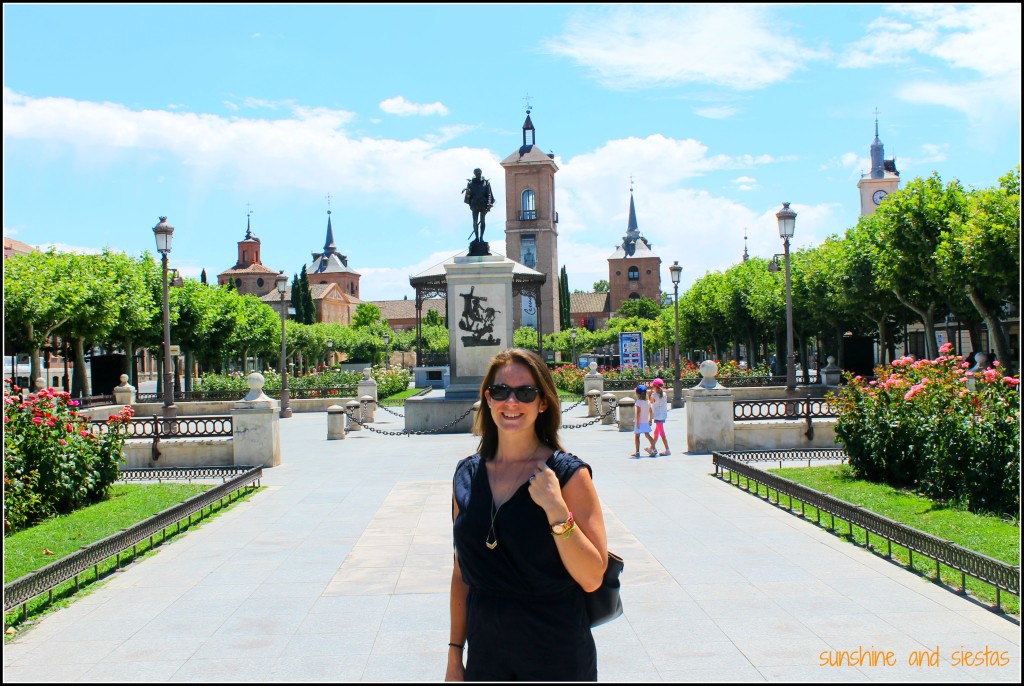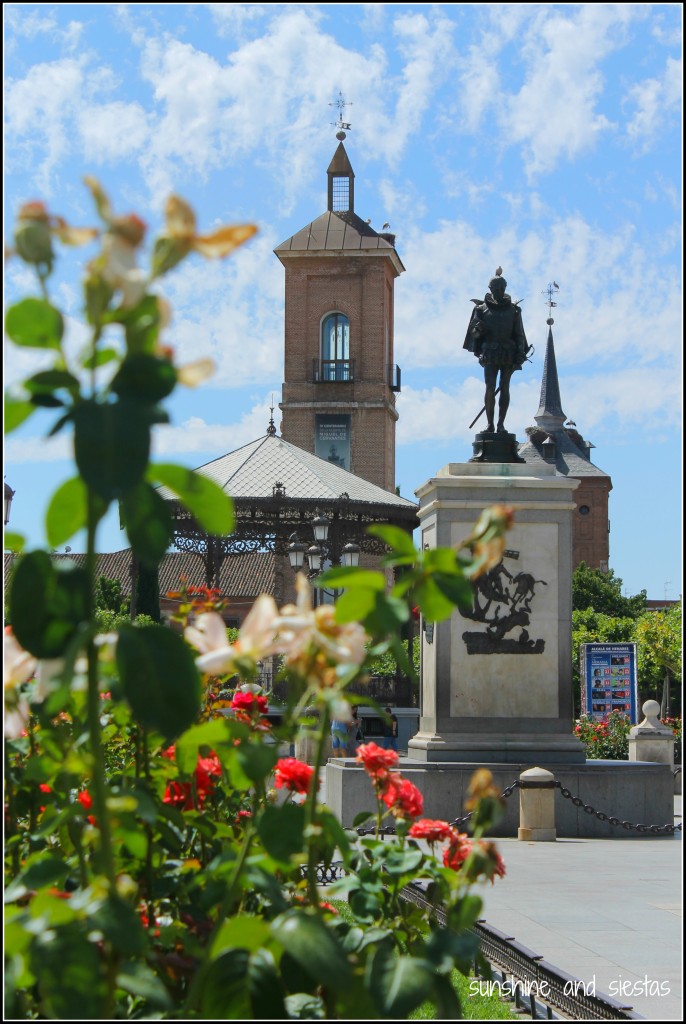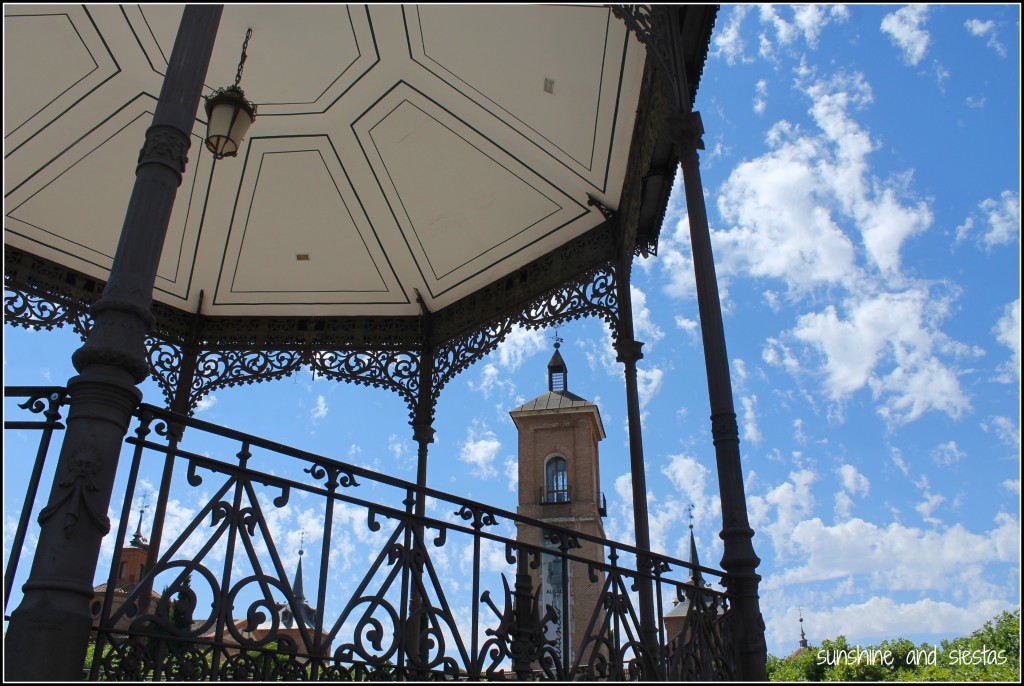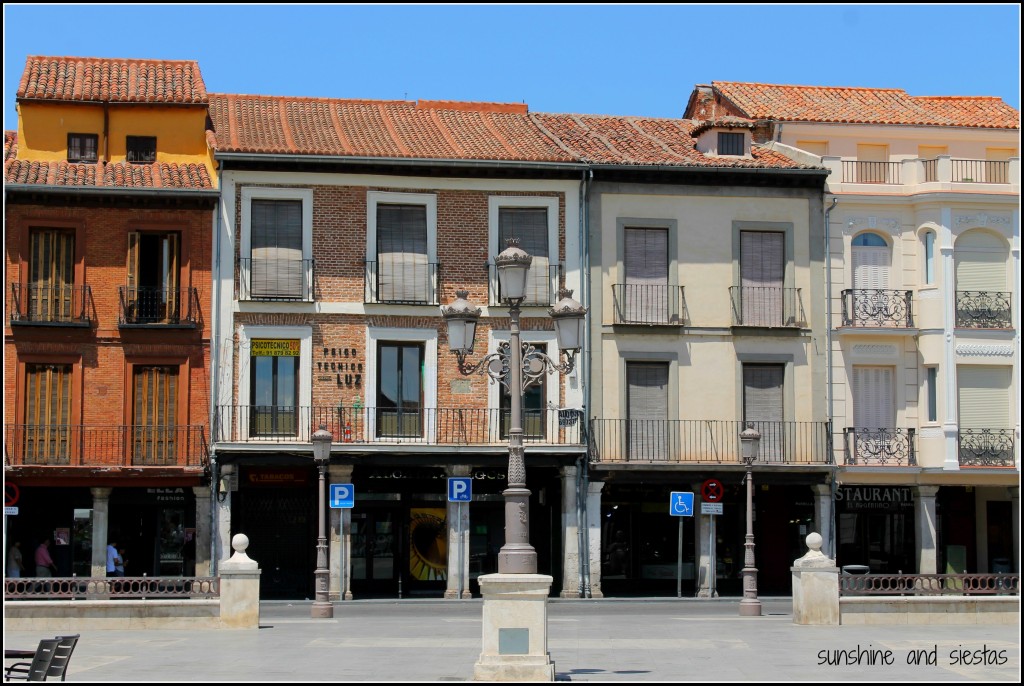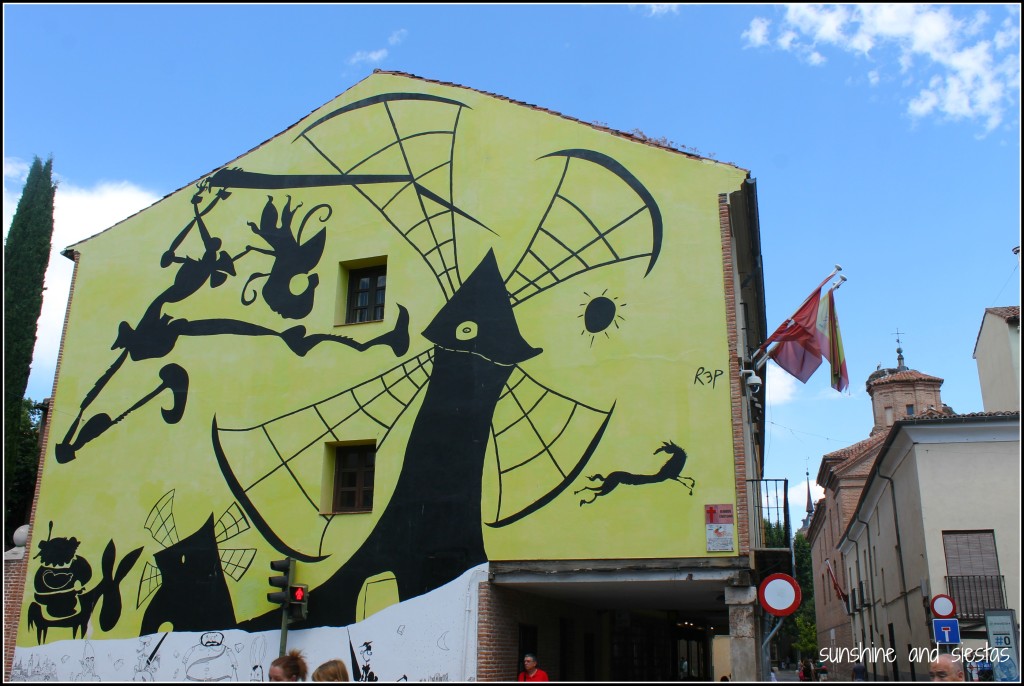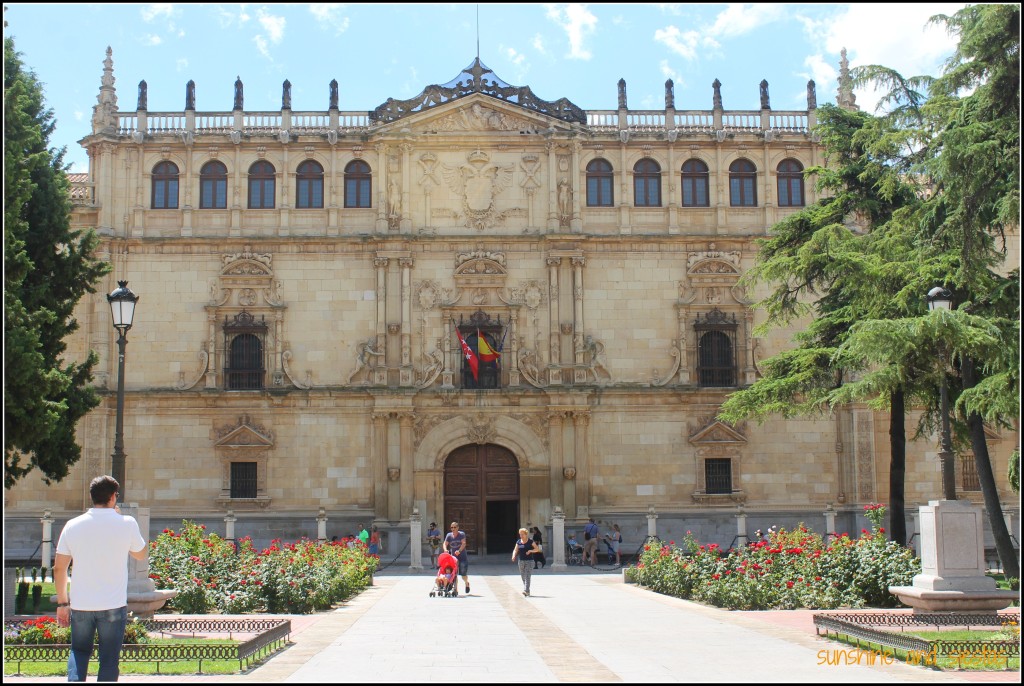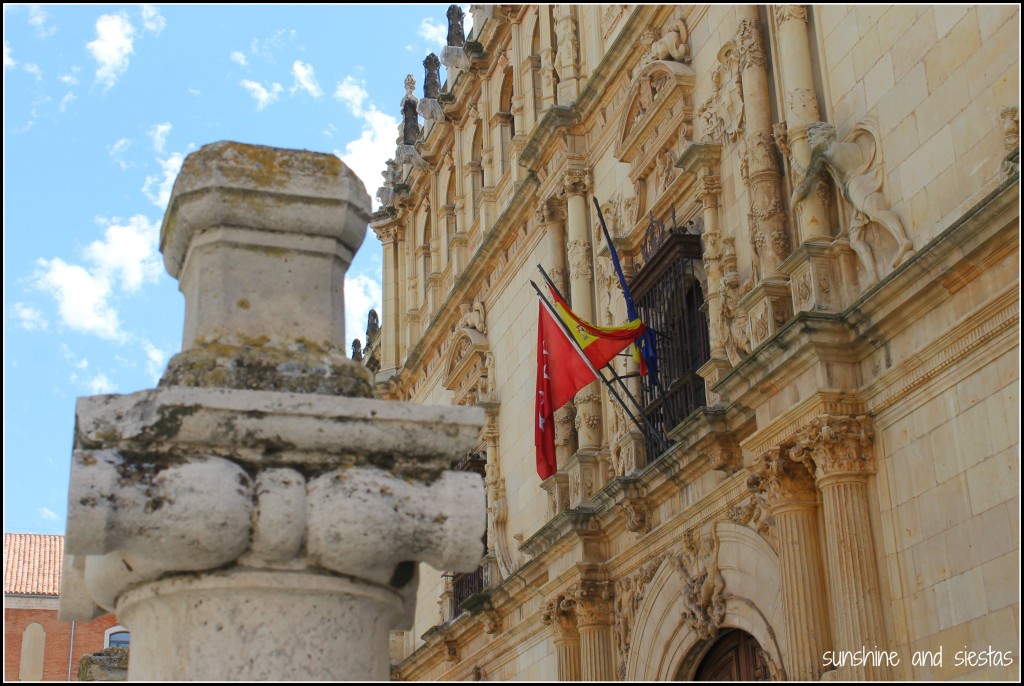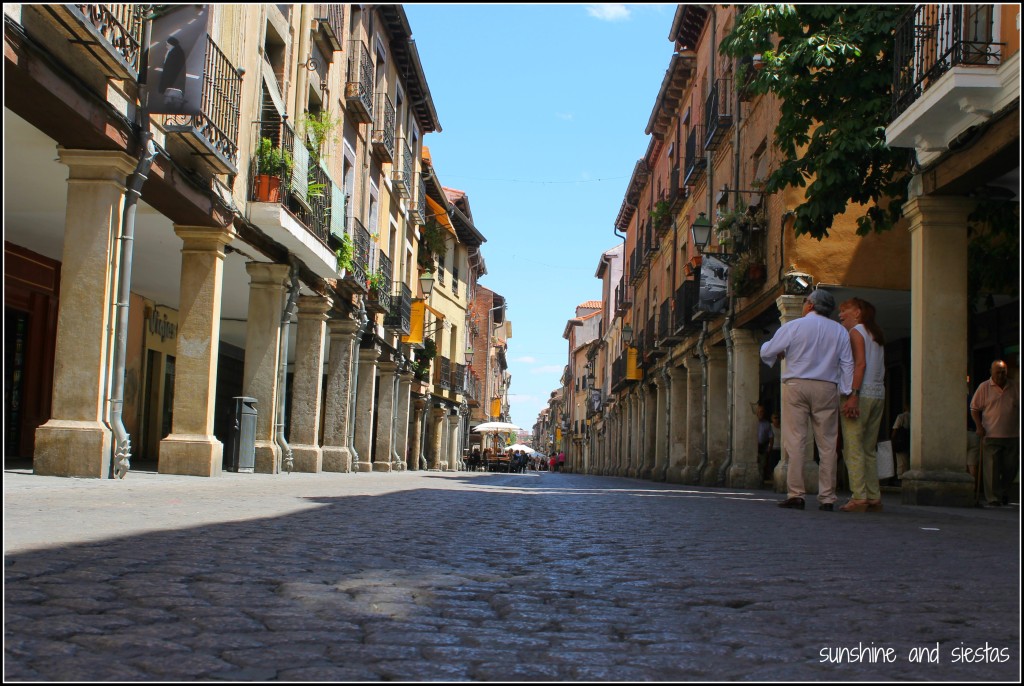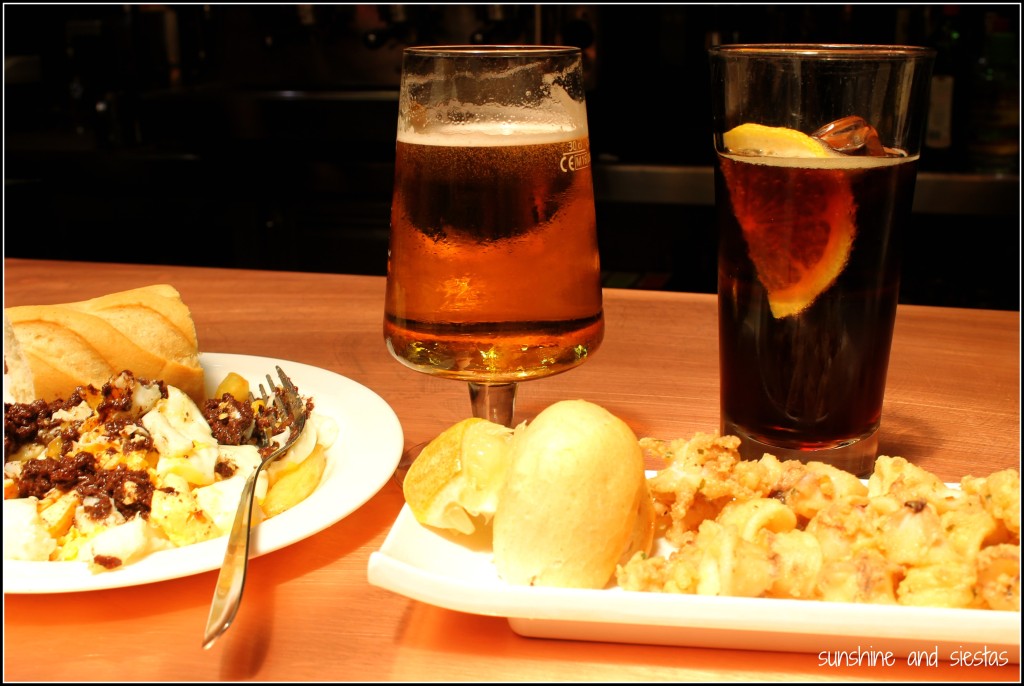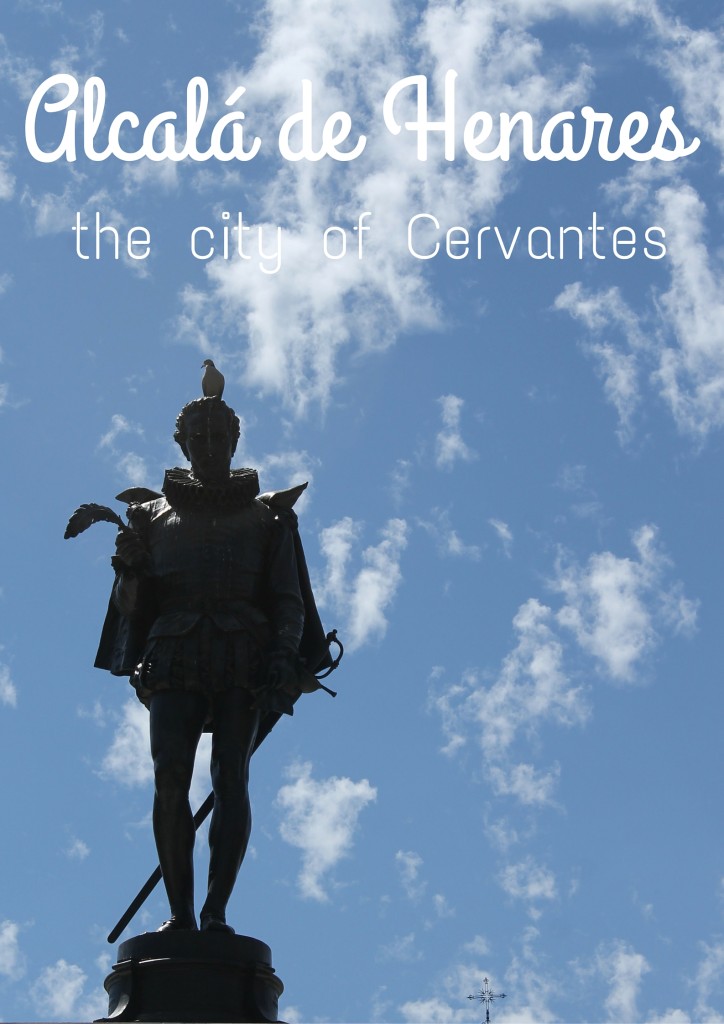The Spain of my pre-Sevilla had one leading protagonist (perhaps loverboy?) : Miguel de Cervantes Saavedra. Spain’s most famous author is best known for his chronicle of Spanish knighthood, Don Quijote, Man of La Mancha, and he penned the book while living in Valladolid over 400 years ago.
If you’ve ever studied Spanish, you’ve likely been force-fed the adventures of a wayward knight whose fantasies took over his perceptions of daily life. These days, my fantasies have been about getting out and exploring my new city and its surrondings.
So it seemed only fitting to make our first day trip from Madrid to Alcalá de Henares, the city in which Cervantes was born and to which his name is commonly associated to pay an early homage to his and contributions to the Spanish language and its literature. I’d visited Alcalá on a biting cold April afternoon in 2013; this time, the Novio and I chose a clear day in mid-July to escape the heat in La Capi.
My sense of direction is far sharper than my common sense, so my feet led us right into the historic center and to the Plaza de Cervantes. Ringed with benches and Spanish abuelos (Do I need to tell you that I fell in love with the city immediately?), it sidles up to the university, historic city and Calle Mayor, and is crowned by the former Santa María la Mayor church.
Alcalá is actually a town of 200,000, making it a city by Spain standards. But on a long weekend in the middle of summer, the city itself was about as dead as Cervantes – plazas and bars were empty and shops closed. And without a plan or interest in ducking into a museum, we did little else than stroll from plaza to bar to plaza.
The historic center itself is small and easily walkable, a pleasant cross between the squat, wood-laden buildings conserved from the 16th Century and a modern city with a cutting-edge educational institution.
The Universidad de Alcalá is considered to be one of the oldest universities in the world and became the first planned university city, earning it a UNESCO World Heritage nod. Taking a tour with a guide was the best way to learn about the long and fascinating history of the campus (and it’s under 5€ if you have a carnet joven!) and the role it still has in Spain’s educational system. Oh, and it’s pretty.
The Novio and I walked arm-in-arm through the winding streets of the city, stumbling upon sun-dappled plazas and retracing the footsteps of Cervantes, Caredenal Cisneros and other prominent Spanish figures. Alcalá was also the city in which the Catholic Kings conceded a meeting to Christopher Columbus and agreed to study his claim that the world was, indeed, not flat.
We sidled up to the bar at Bar Índalo, an institution known for its generous free tapas. Most bars give heaping plates of snacks to its student population, but we were más que comidos for less than 12€ and chose tapas rather than having something shoved in front of us. If there’s one thing that Madrid does better than Seville, it’s free bites with your drink (and vermouth. I am an old man when it comes to alcohol).
Visiting the city following a springtime trip to see the Manchego windmills that Don Quijote thought to be giants, the hallmarks of El Príncipe de los Genios were evident, from statues of the Man of La Mancha to bars hailing Sancho Panza, the voice of reason in Cervantes’s most famous title. It certainly gave me context to the man who wrote the Spanish novel I’ve yet to tackle (I’ve had a 400th Anniversary edition for nearly a dozen years).
If you go: Alcalá de Henares is a quick cercanías trip from Madrid – it will take you 40 minutes on the C2 or C7 line from Atocha – roundtrip is about 7,20€. Large city festivals include the Día Cervantino on September 9th and Día del Libro on April 23rd, the day marking both Cervantes and Shakespeare’s deaths.
You can also take this article with you via GPS guided post! Download GPSMyCity and purchase the guide, which helps maintain Sunshine and Siestas operating costs. The best part is that you can use it offline!
Have you ever been to Alcalá de Henares or another UNESCO World Hertiage site in Spain? My university town is a UNESCO Literary City, and I’m kind of a book nerd, so please share below!
